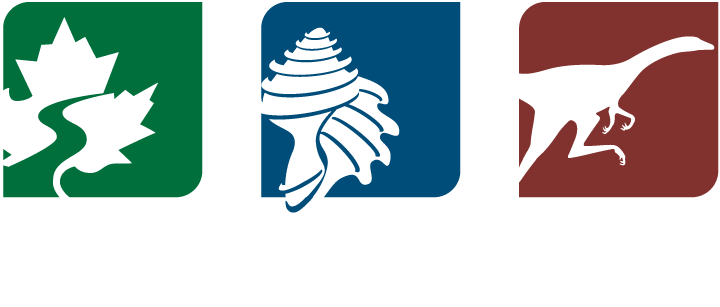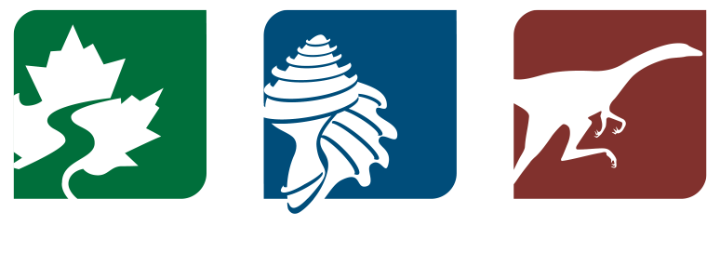G. Lynn Wingard
G. Lynn Wingard
G. Lynn Wingard
Applied paleoecologist
G. Lynn Wingard is an applied paleoecologist. She studies sediment cores and samples from Florida to understand how ecosystems like the Everglades functioned before development and to help inform restoration efforts.
Lynn received her bachelor’s in geology from the College of William & Mary in Williamburg, Virginia. She later completed her master’s and doctoral degrees in geology at George Washington University in Washington, D.C. She started working as a Physical Science Technician at the U.S. Geological Survey (USGS) in 1983 while in graduate school and has been a Research Geologist with the USGS since 1991, based at the Florence Bascom Geoscience Center in Reston, Virginia. She has also been an Associate Faculty member with the Geology Department of the College of William & Mary since 2016.
Lynn’s research is in conservation paleobiology and applied paleoecology. Her early researched focused on the taxonomy of fossil mollusks from the Gulf Coast. After she had been working at the USGS for several years, she shifted her focus to supporting the Greater Everglades Ecosystem Restoration project. As part of her work, she interprets data from sediment cores and other samples to reconstruct what the Everglades were like prior to development during the twentieth century, which greatly altered their water flow and quality. Reconstructing the Everglades environment in the near-recent (in other words, over the past several thousand years) provides information that can be used to inform restoration efforts today. Lynn also examines how climate change, including sea level rise and increasing extreme weather events, impact Florida’s ecosystems, such as the Everglades, offshore islands, and estuaries.
In addition to her work as a researcher at the USGS, Lynn serves on the Board of the Association for Women Geoscientists (AWG), as an Associate Editor for Frontiers in Ecology and Evolution, and in several mentoring and outreach programs.
Daring to Dig Interview
In this video, Lynn discusses how she became interested in paleontology and geology, how she feels that the field of paleontology has changed during her career, her work in Everglades restoration, and her future research plans. This interview was recorded in 2019.
Field photos from Florida Bay
In 2017, Hurricane Irma hit southern Florida as a category 3 storm. In January 2018, Lynn and a USGS team went to Florida Bay, which is located off the southern tip of the Florida peninsula. There, they collected samples and documented the effects of the hurricane on islands. (The images below are part of a gallery; click on each image to view at full size and read full caption.)
Selected works by G. Lynn Wingard
Wingard, G.L., and J.W. Hudley. 2012. Application of a weighted-averaging method for determining paleosalinity: A tool for restoration of South Florida’s estuaries. Estuaries and Coasts 35: 262–280. Link
Wingard, G.L., and J.L. Lorenz. 2014. Integrated conceptual ecological model and habitat indices for the southwest Florida coastal wetlands. Ecological Indicators 44: 92–107. Link
Wingard, G.L., and D. Surge. 2017. Application of molluscan analyses to the reconstruction of past environmental conditions in estuaries. Pp. 357–387 in K. Weckström, K. Saunders, P. Gell, and C. Skilbeck (eds.). Applications of paleoenvironmental techniques in estuarine studies. Developments in paleoenvironmental research 20. Springer, Dordrecht, The Netherlands. Link
Wingard, G.L., C.E. Bernhardt, and A.H. Wachnicka. 2017. The role of paleoecology in restoration and resource management—the past as a guide to future decision-making: Review and example from the greater Everglades ecosystem, U.S.A. Frontiers in Ecology and Evolution 5: 11. Link
Wingard, G.L., S.E. Bergstresser, B.L. Stackhouse, M.C. Jones, M.E. Marot, K. Hoefke, A. Daniels, and K. Keller. 2020. Impacts of Hurrican Irma on Florida Bay Islands, Everglades National Park, USA. Estuaries and Coasts 43: 1070–1089. Link
Selected projects led by G. Lynn Wingard
Determing target salinity values for restoration of the estuaries of the greater Everglades. USGS Florence Bascom Center, published 19 June 2019. Link
Sea level rise and climate: impacts on the greater Everglades ecosystem and restoration. USGS Florence Bascom Center, published 11 October 2018. Link
Video & audio content
National Public Radio (NPR), All Things Considered: “Climate change may wipe out large mangrove forests, new research suggests.” Audio, 11 September 2020. Link






